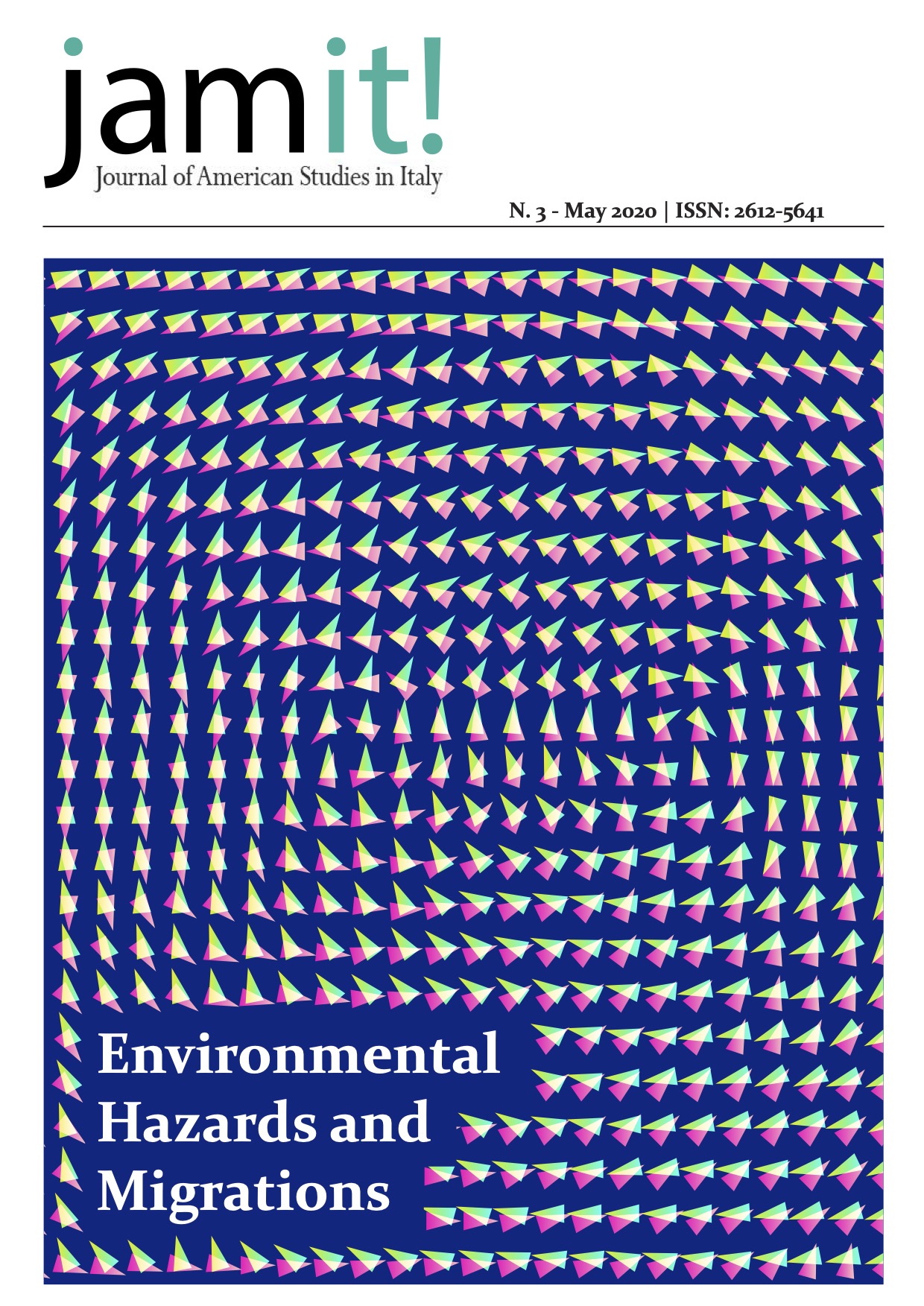The Absent Victims: An Ecolinguistic study of Environmental Refugees in The New York Times
DOI:
https://doi.org/10.13135/2612-5641/4149Parole chiave:
Climate Change, Climate Refugees, Environmental Refugees, Farming, Absences, News DiscourseAbstract
Absence of coverage in elite newspapers about one aspect of climate justice is environmental
migration. Very little is understood about victims caught in the debate about climate change
and forced movement. The New York Times, with its selective framing of the issue makes
absent ideologically important factors that seem to alter the central story line of
environmental migration. These absences are methodologically mapped using Stibbe’s
(2015) conceptual tools of capturing erasure in texts in this paper. The argument that emerges
from mapping these absences is that there is a categorical operational difference between
erasure and absences. While erasure may be intentionally manipulative, absences offers elite
newspapers a way forward to ignore issues that do not seem to be news-worthy for coverage.
This way absence of coverage leads to absence of attention on the true victims of climate
change.
##submission.downloads##
Pubblicato
Fascicolo
Sezione
Licenza
Authors who publish with this journal agree to the following terms:
- Authors retain the copyright and full publishing rights for their submissions to the journal.
- Authors grant the journal right of first publication with the work simultaneously licensed under a Creative Commons Attribution-NonCommercial-NoDerivatives 4.0 International License that allows others to share unedited work for non-commercial purposes with an acknowledgement of the work's authorship and initial publication in this journal.
- Authors are able to enter into separate, additional contractual arrangements for the non-exclusive distribution of the journal's published version of the work (e.g., post it to an institutional repository or publish it in a book), with an acknowledgement of its initial publication in this journal.
- Authors are permitted and encouraged to post their work online (e.g., in institutional repositories or on their website) prior to and during the submission process, as it can lead to productive exchanges, as well as earlier and greater citation of published work (See The Effect of Open Access).





